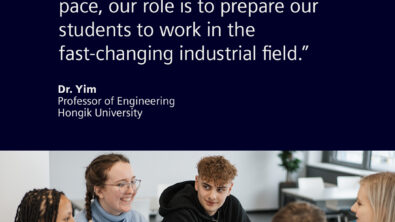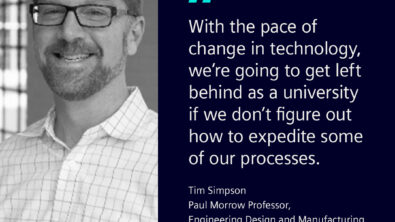Getting the Classroom Ready to Face Industry 4.0’s Challenges
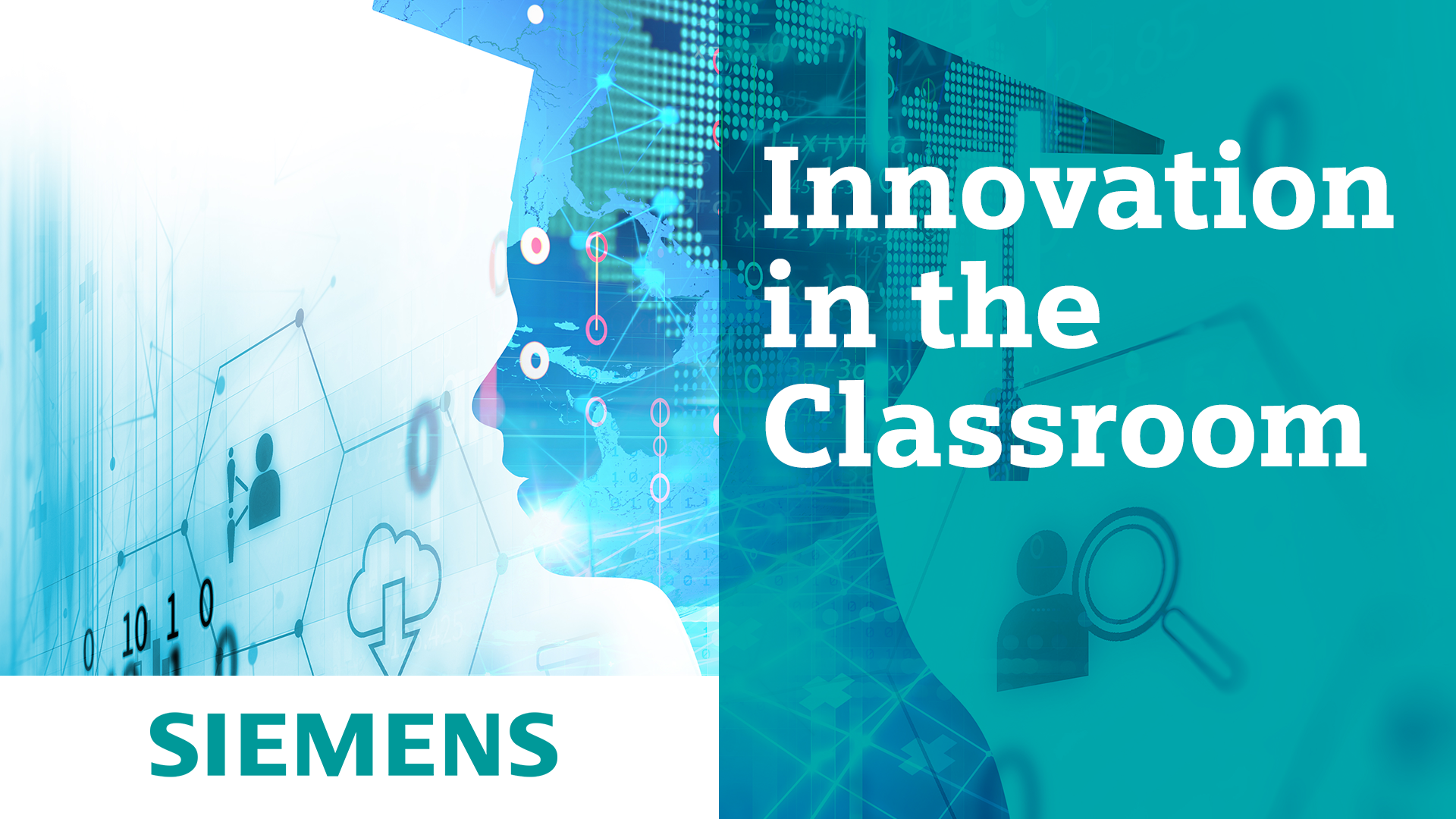
Who are the orchestrators behind STEM curriculum accreditation within post-secondary education? How do they help the emerging workforce prepare for the demands of an ever-evolving industry?
On this episode of Innovation in the Classroom, join host Dora Smith as she sits down with Michael Milligan, CEO and Executive Director of ABET, an NGO dedicated to accrediting post-secondary educational programs in applied natural science, computing, engineering, and engineering technology.
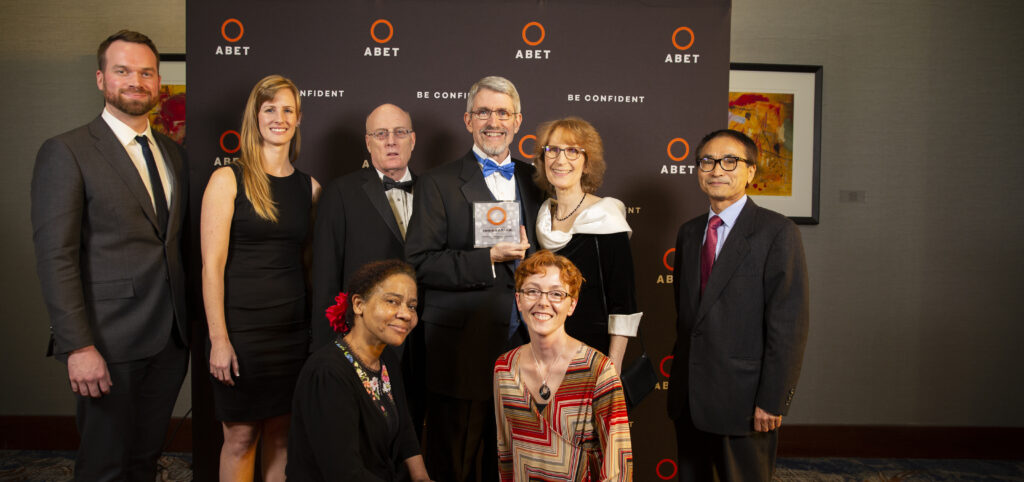
ABET Innovation Award winner from 2019 ABET Awards Celebration, Vertically Integrated Projects (VIP) Consortium. Learn more about the award and the past winners here.
Dora and Michael explore the intersectionality between academia and Industry 4.0 as well as the at-large industry benefits of program accreditation. From discussing the implications of ethical concerns such as sustainability or globalization on the industry to the ramifications of the ever-present skills gap, listen as the pair discusses the most pertinent issues that the future of our workforce faces.
When asked about how education is adjusting to meet the demands of Industry 4.0, Michael replied, “I think we all are witnessing how fast things change. The technology and the demand for new technologies and so forth is lightspeed. It’s something that’s really amazing. And so, how do we adjust to help support all that?” To learn more on their thoughts on the answer to such a paramount question, make sure to listen in below.
Questions I ask:
- Can you tell us about yourself and your journey to ABET? (1:24)
- What do you feel is the overall role that ABET plays in education and why are accreditation and engineering programs important? (2:59)
- What does accreditation mean to employers and the industry? (4:22)
- How do universities blend theory and practice to meat ABET standards? (5:52)
- Can you point out some specific effects you’ve noticed in education and how it’s adjusting to meet industry 4.0? (10:23)
- Are there any engineering fields that you’ve seen large shifts in curriculum in because of the evolving global workforce needs? (15:53)
- Some educators will say that change is really hard due to accreditation requirements. Yet others say ABET provides great flexibility in how criteria is met. Can you help set the record straight?
- Can you talk about why diversity and inclusion is so important and how you are starting to approach it in your criteria? (22:01)
- We’ve been seeing a lot of non-degree credentials becoming more popular with learners, industry, and employers both as an alternative to and a pathway towards traditional degree programs. What do you see is ABET’s role in that? (30:42)
- What impact does the industry have on ABET accreditation? What can our listener base do to support and engage with ABET? (34:10)
In this Episode You Will Learn
- What the ABET accreditation process for STEM education at post-secondary institutions looks like (3:19)
- How the industry influences ABET accreditation standards (4:22)
- How educational standards have evolved to match the growing demands of the industry (5:52)
- About academic innovation is utilized to match the needs of industry 4.0 (17.24)
- About how ethical implications within the industry have influenced curricula (22:01)
- About the impact that the popularity of non-traditional degree credentials has on the emerging workforce (30:42)
- How the industry can engage and support ABET (31:07)

Michael Milligan – Executive Director and CEO of ABET
Michael Milligan is the Executive Director and CEO of ABET, the global accreditor of over 4,300 college and university STEM programs in 41 countries.
Prior to joining ABET in 2009, Milligan worked at the NASA Goddard Space Flight Center developing the next generation of environmental satellites for NOAA. He also served over 24 years as a career US Air Force officer working in operations, international R&D, technology acquisition and education as a USAF Academy faculty member. Milligan earned a PhD, MS and BS in Electrical Engineering from the University of Texas at Austin, University of Massachusetts Lowell and Michigan State University, respectively, and the MBA from Western New England University. He is a Registered Professional Engineer (PE) and a Certified Association Executive (CAE).
Don’t forget to subscribe to the Innovation in the Classroom Podcast, so you never miss an episode! Keep checking back for more episodes on the future of engineering education and the people who are making it happen.
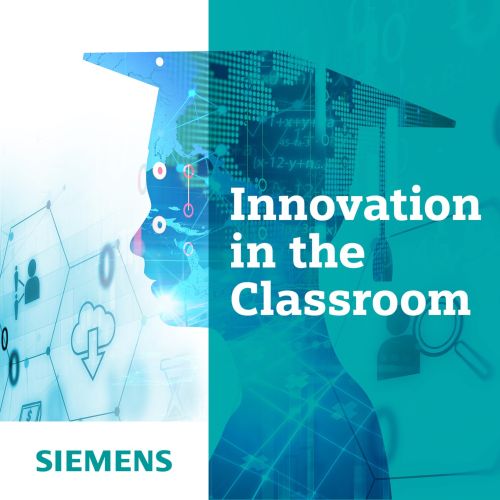
Innovation in the Classroom
Innovation in the Classroom by Siemens explores best practices to empower the next generation of digital talent. In this podcast series, Dora Smith takes you through discussions with leading voices from the world of engineering education who are preparing future engineers in Academia 4.0 to shape the world of innovation.
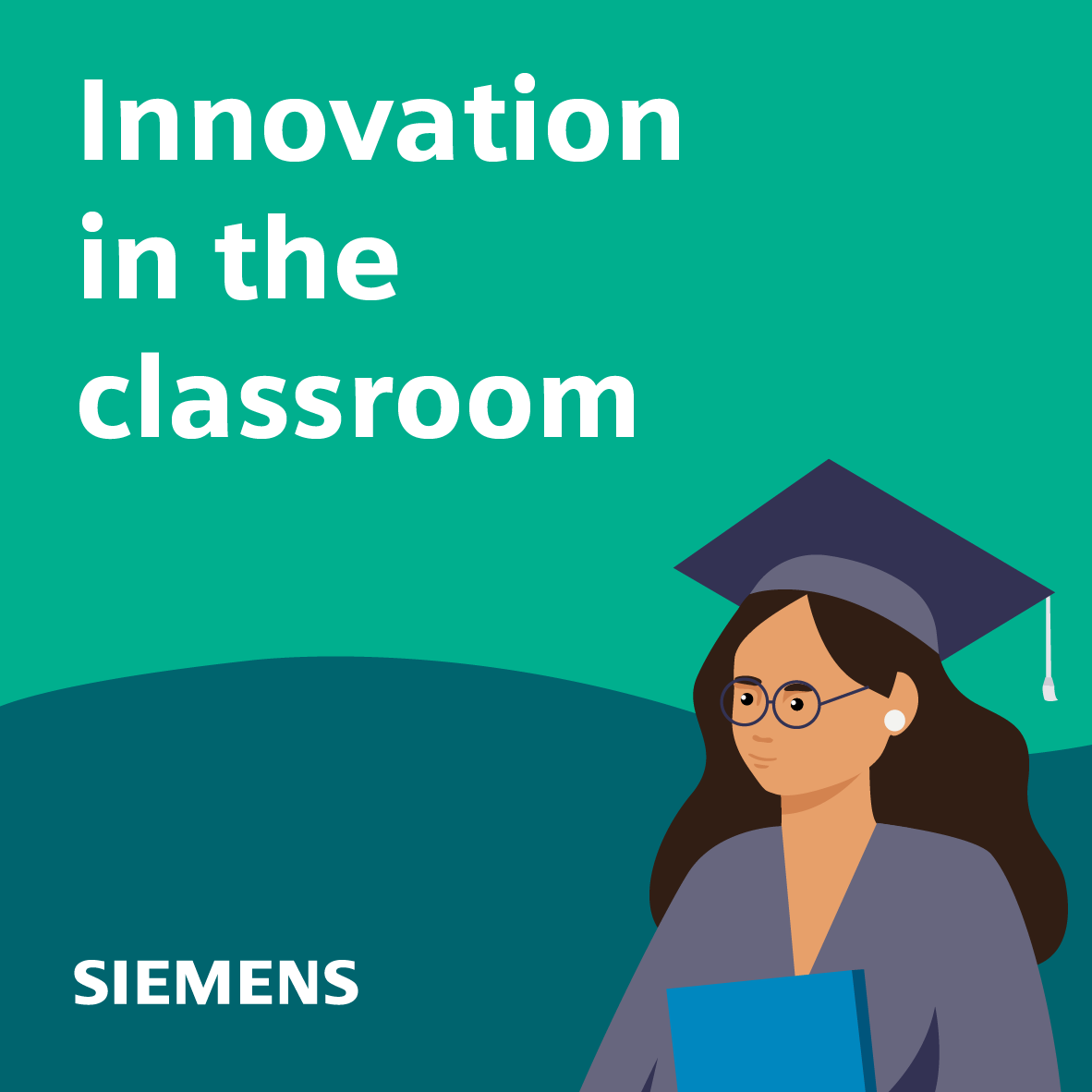
Innovation in the Classroom Podcast
Innovation in the Classroom by Siemens explores best practices to empower the next generation of digital talent. In this podcast series, Dora Smith takes you through discussions with leading voices from the world of engineering education who are preparing future engineers in Academia 4.0 to shape the world of innovation.
